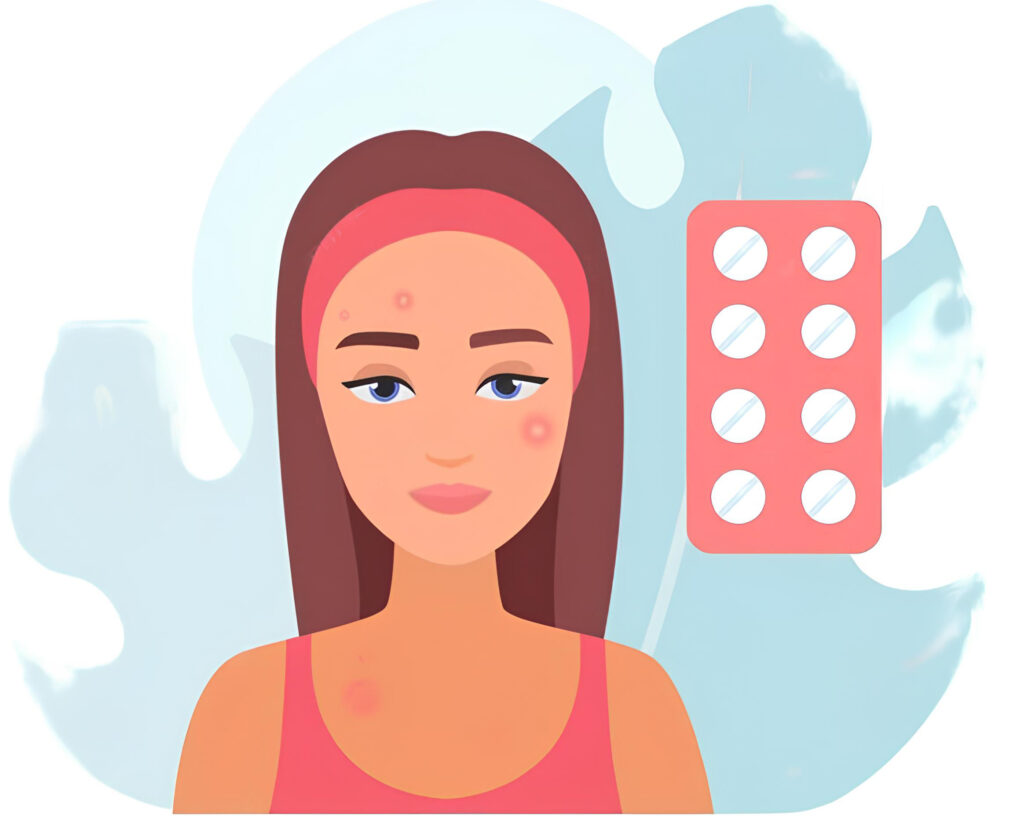
Acne is one of the most common skin conditions worldwide, affecting people of all ages. While hormonal changes, stress, and diet play a role, a significant factor behind moderate to severe acne is bacterial infection, particularly by Cutibacterium acnes (formerly Propionibacterium acnes). When clogged pores become infected with bacteria, the result is inflamed, painful acne lesions. For these cases, antibiotics can be highly effective.
Understanding Bacterial Acne
Bacterial acne forms when oil, dead skin cells, and bacteria clog hair follicles. The presence of C. acnes triggers an immune response, causing inflammation, redness, and pus. In severe or persistent acne, topical treatments often aren’t enough. That’s where oral antibiotics come in.
Why Use Antibiotics?
Antibiotics help by:
-
Reducing the population of acne-causing bacteria
-
Decreasing inflammation in the skin
-
Allowing other treatments (like retinoids) to work more effectively
However, not all antibiotics are equally effective. The best results come from using targeted medications under medical supervision.
Doxycycline Monohydrate 100 mg: A Leading Solution
One of the most prescribed oral antibiotics for acne is doxycycline monohydrate 100 mg. Belonging to the tetracycline class of antibiotics, doxycycline has both antimicrobial and anti-inflammatory properties. It works by inhibiting protein synthesis in bacteria, effectively slowing or stopping their growth.
Key Benefits:
-
Effective Against C. acnes: Doxycycline directly reduces the bacteria that cause acne inflammation.
-
Anti-Inflammatory Action: It reduces swelling and redness around the lesions, making the skin look calmer.
-
Fewer Gastrointestinal Side Effects: Compared to other forms of doxycycline, the monohydrate version is gentler on the stomach.
How to Take Doxycycline for Acne
Doxycycline is typically prescribed in 100 mg doses once or twice daily, depending on acne severity. It should be taken with a full glass of water, preferably on an empty stomach. For best results:
-
Avoid taking it with dairy products, which can interfere with absorption.
-
Use sunscreen, as doxycycline can make your skin more sensitive to sunlight.
-
Complete the full course as prescribed to prevent bacterial resistance.
Visible improvement usually begins after 2–4 weeks, with optimal results appearing around 8–12 weeks.
Other Antibiotics for Acne
Besides doxycycline, other antibiotics commonly used for acne include:
-
Minocycline: Another tetracycline antibiotic, slightly more lipophilic, which may work faster for some patients.
-
Erythromycin: Often used for those who cannot tolerate tetracyclines, but bacterial resistance is more common.
-
Clindamycin (topical): Often combined with benzoyl peroxide, it works well for mild to moderate cases.
-
Trimethoprim-Sulfamethoxazole (TMP-SMX): Used in severe, treatment-resistant cases.
However, doxycycline remains a first-line choice due to its proven effectiveness and tolerability.
Caution and Resistance
The biggest concern with antibiotic use in acne is bacterial resistance. This can occur if the antibiotic is overused or not taken properly. To avoid this:
-
Always combine antibiotics with a topical agent like benzoyl peroxide or retinoids.
-
Do not use antibiotics as the only long-term treatment.
-
Follow up with a dermatologist regularly to adjust your regimen.
Where to Buy Doxycycline Monohydrate 100 mg
If you’ve been prescribed Doxycycline Monohydrate 100 mg, you can buy it online from Dosepharmacy. They provide reliable medications at affordable prices, with discreet delivery and licensed pharmacy support.
Final Thoughts
For moderate to severe bacterial acne, antibiotics like Doxycycline Monohydrate 100 mg offer a powerful treatment option. When used as part of a comprehensive skincare routine and under medical supervision, they can drastically reduce breakouts and improve skin clarity. However, it’s crucial to balance effectiveness with safety—avoiding overuse and combining treatments wisely.







